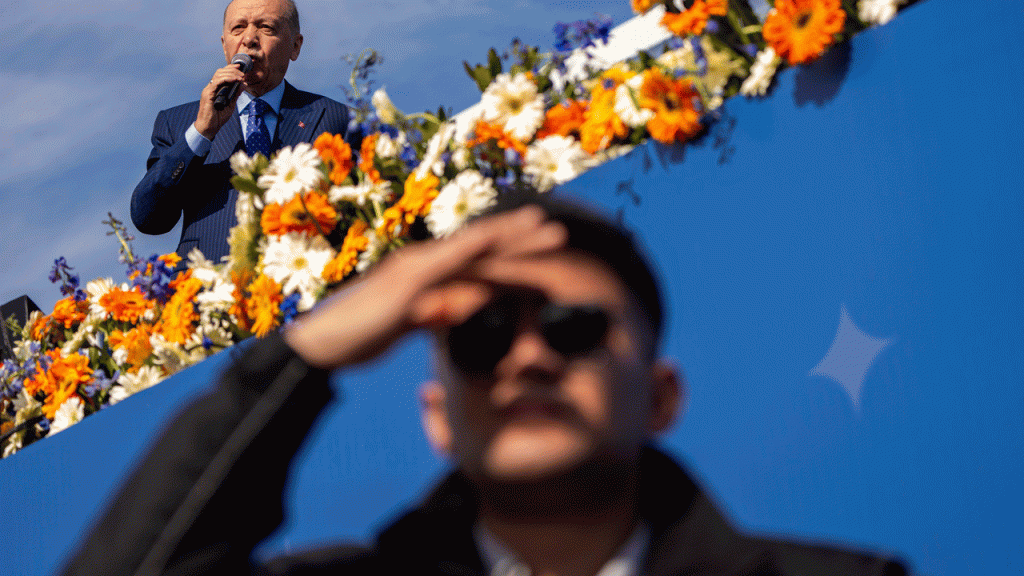As Turkish citizens prepare to cast their votes in local elections, the ruling party of President Recep Tayyip Erdogan is aiming to win back key cities such as Istanbul and Ankara, which were lost in the elections held five years ago. Erdogan’s victory in these cities could potentially lead to the introduction of a new constitution, allowing him to extend his rule beyond his current term. Analysts believe that retaining control over these municipalities could help revive the opposition, which has been fractured following recent defeats. The results of these elections will provide an indication of Erdogan’s popularity and the direction in which Turkey’s political landscape is heading.
The battle for Istanbul, in particular, is one of the key focal points of this election. In the previous local elections, the incumbent mayor was defeated by a united opposition, ending a 25-year reign of Erdogan’s party in the city. The current mayor, Ekrem Imamoglu, is being challenged by Murat Kurum, who is backed by Erdogan’s party. The election campaign has seen promises of infrastructure improvements and traffic congestion alleviation from both candidates. In Ankara, the incumbent mayor Mansur Yavas remains popular and is considered a potential future presidential candidate. The outcomes of these elections will have a significant impact on the direction of Turkey’s political future.
President Erdogan has been actively campaigning for his party’s candidates across the country, in an effort to secure victories in Istanbul and Ankara. Winning back control of these cities could provide Erdogan with the momentum needed to push for constitutional changes that would allow him to extend his rule beyond his current term limit. Despite Erdogan’s attempts to consolidate power, the opposition is hoping to bounce back following recent defeats. A six-party alliance led by the CHP had disintegrated after a devastating election loss, but a victory in key cities could help revitalize the opposition and provide a viable alternative to Erdogan’s ruling party.
Campaigning in Turkey has been fraught with accusations of unfair practices, with Erdogan utilizing state resources and biased media coverage to benefit his party’s candidates. The opposition has expressed concerns over the lack of equal media coverage and the use of state broadcaster TRT to promote the ruling party. Additionally, Erdogan has utilized government services as a way to garner support from voters, increasing the minimum wage and showcasing the country’s achievements in the defense industry during his campaign rallies. Kurdish voters, who make up a significant portion of the electorate, could play a decisive role in the mayoral race in Istanbul, with the pro-Kurdish party fielding its own candidates.
The local elections in Turkey will not only determine the mayors and administrators of various cities but also have broader implications for the country’s political future. The stakes are high for both Erdogan’s ruling party and the opposition, with control over key cities such as Istanbul and Ankara serving as a litmus test for their popularity. Erdogan’s potential victory in these cities could pave the way for constitutional changes that would allow him to extend his rule, while a resurgence of the opposition could provide a viable alternative to his party’s dominance. As voters head to the polls on Sunday, the outcome of these elections will shape the trajectory of Turkey’s political landscape in the coming years.















